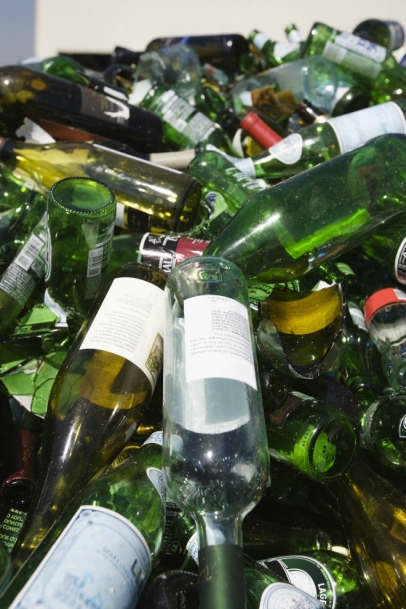Hauling Glass Houston, helping to fill the recycling void
Local entrepreneurs offer strategies to reduce, reuse, recycle
In 2016 the City of Houston stopped curbside glass collection which is a huge set-back to reducing waste headed to our landfills. While there are locations to drop off glass, it takes an effort for individuals to do the right thing. The good news is that local entrepreneurs offer ways to help make Houston a more sustainable city in which to live.
RECYCLE GLASS CURBSIDE IN HOUSTON
A glass recycling business was born in the mind of 8-year-old Tristan Berlanga in March 2016 when the City of Houston stopped curbside collection of glass. Berlanga and 28-year-old family friend David Krohn initially were planning to collect glass in their neighborhood and take it to one of the city’s recycling centers. They distributed flyers in their neighborhood to see if anyone was interested in participating. The answer has been a resounding yes.
Since March, Hauling Glass Houston (haulingglasshouston.com) has added two employees, collected almost 36 tons of glass from homes in 25 ZIP codes and partnered with Strategic Materials, the biggest recycling company in North America.
Because he’s a student, Berlanga helps out on the route in his neighborhood every two weeks. Krohn handles customer communications and logistics for two employees in addition to his day job.
Collected glass is taken to the company’s downtown lot and placed in a roll-off bin. When full, Strategic Materials hauls the bin to its processing plant in Houston.
Residential customers are Hauling Glass Houston’s primary focus. It recently added its first commercial customer, a downtown loft building. Krohn says the next step is figuring out how to attract restaurants and bars, some of which currently use privately contracted waste companies.
“We’re figuring out the best way to convince other restaurants and bars that recycling glass is worth the money and effort on their end. It’s a matter of logistics,” he says, adding that glass is basically 100% recyclable, more so than cardboard, plastic or aluminum.
The biggest lesson that Krohn and Berlanga have learned is to just jump in and do things. “Forcing ourselves to make moves, like taking on new ZIP codes, is really important as an entrepreneur. It’s so easy to get caught up in planning too much, and most of the time it doesn’t worked out how you planned it, so you might as well just do it.”





